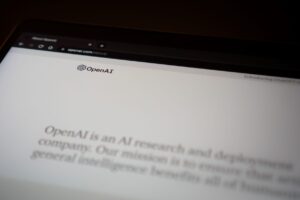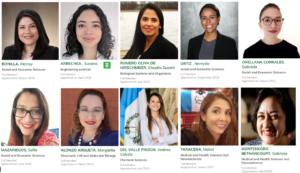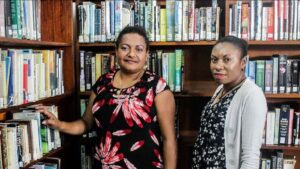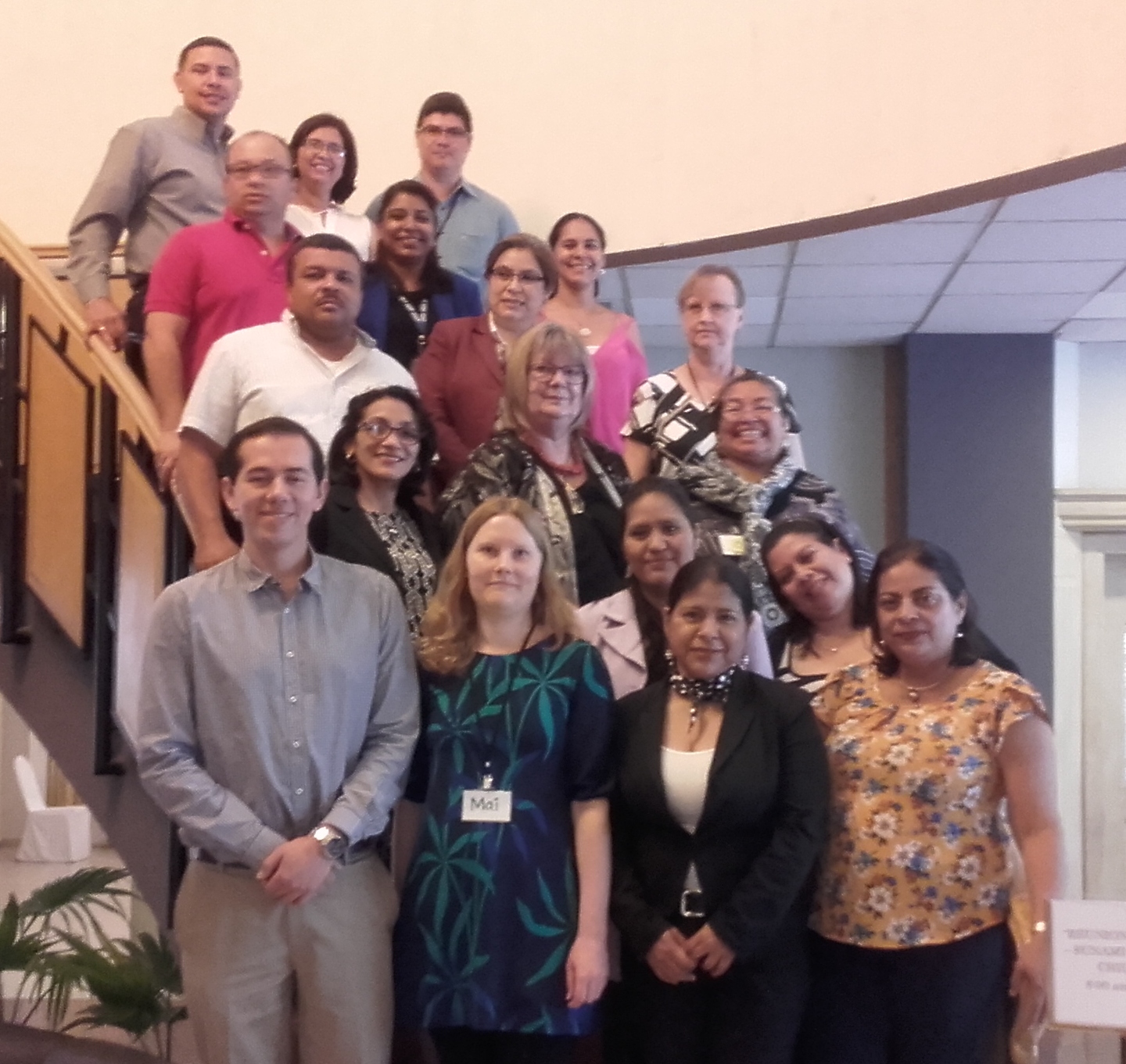
Sustainable development through stronger library consortia networking in Latin America
“[Access to research literature] is very important, because this will allow us to improve the quality of research in Nicaragua,” said Ruth Velia Gómez, who is Coordinator of the PERii-Nicaragua consortium.
Patricia Rodas, Universidad Nacional Autónoma de Honduras, lead coordinator of AUREA: Red de Bibliotecas de Honduras, agreed:
“It is very important for us because we know that the quality offered by these electronic resources will help our researchers publish better research. […] When a reader consults those bibliographies, they will trust [the information] because the bibliography did not just come from anywhere, and that’s how we ensure the quality of the research.”
Ruth Velia and Patricia were speaking at a regional meeting held in El Salvador in November 2017 for the three library consortia in El Salvador, Honduras and Nicaragua.
For many years, in partnership with INASP, these three library consortia have played an important role in facilitating information access for researchers in their country. In addition to subscribing and negotiating jointly for access to research information published by international publishers, the consortia also facilitate training for their librarian members. This allows them to provide a better service to the researchers, academics and students at their institutions.
Good links for a strong future
A few weeks ago Anne Powell wrote about the work we have been doing to strengthen the strongest library consortia in Africa to become increasingly capable of and confident in managing direct relationships with publishers to ensure long-term access to research literature. As Anne reflected in her post, a meeting with African library consortia in October witnessed these strong consortia showing their growing confidence as they continue to enhance their members’ ability to deliver effective research information services. This is important as we look to the end of INASP’s Strengthening Research and Knowledge Systems (SRKS) programme.
The November meeting in El Salvador was similarly held to celebrate achievements and help strengthen links in Central America.
The meeting gave an opportunity for the consortia to come together and share their experiences. They facilitated sessions looking at strategic planning, how to formulate compelling advocacy messages and handling direct relationships with publishers. One of the highlights of the meeting was the consortia formulating and signing a collaboration agreement, with each of the three consortia responsible for carrying forward one of the action points in the agreement.
Achievements of the consortia
While in El Salvador we had the opportunity to talk about and reflect on the achievements of the consortia during their collaboration with INASP.
“[…] having the consortium has been one of the greatest developments for us because we did not have a formal consortium. This contributed a lot.”– Ruth Velia Gómez, Coordinator, PERii-Nicaragua consortium
“We believe that if we work as a team the results are better than if we work individually. Forming a consortium to negotiate as a team has helped us increase the information resources available to the university population.” – Sonia Amaya, President of the Executive Council, Consorcio de Bibliotecas Universitarias de El Salvador (CBUES)
“Thanks to INASP we have been able to see how we have grown in competencies and confidence in the past few years. We have the confidence to stand in front and say that each and every one of the services we offer are important.” – Patricia Rodas, Universidad Nacional Autónoma de Honduras, lead coordinator of AUREA: Red de Bibliotecas de Honduras
Along with reflections on achievements there was also time to think about some of the challenges that the consortia have faced and how they are overcoming these.
“I think [CBUES] has faced challenges regarding organization, but I think we have been able to face them and identify opportunities to improve, in part thanks to the experiences that other consortia have shared in the region, other countries or geographic areas, and this has been very important in facing, for example, the issue of financing.” – Franklin Alexander Flores, Technical Office Librarian, CBUES
Central American journals
The three Central American consortia that we work with differ from the African ones because, as well as securing access to research literature from other parts of the world, the consortia in Latin America are also the organizations responsible for managing the Central American Journals Online (CAMJOL) platform, which hosts 42 journals published in these three countries. The regional meeting combined a focus on consortia strengthening with taking over responsibility for the management of CAMJOL.
Reflecting on the partnership with INASP
The meeting was also an opportunity to reflect on the partnership with INASP throughout the years.
“Without a doubt, INASP has been a friend that lent a hand to PERii-Nicaragua at the time […]. INASP support in capacity development for librarians was very important in the development of consortia […] but also in the support it has given regarding capacity development for journal editors.” – Ruth Velia Gómez, Coordinator, PERii-Nicaragua consortium
“I’d like to thank INASP; they have been a great support for us. Without them, we would not have been able to get where we are: visibility, position—we are now known internationally, and that is another great achievement.” – Sonia Amaya, President of the Executive Council, Consorcio de Bibliotecas Universitarias de El Salvador (CBUES)
Looking ahead
We asked our partners how they saw the future for their consortia.
“I think we are better positioned now, we have more leadership, better management capabilities and I think we will continue strengthening our work […].” – Ruth Velia Gómez, Coordinator, PERii-Nicaragua consortium
“The best thing would be to strengthen all the libraries in the country because we want the country to move forward […].” – Patricia Rodas, Universidad Nacional Autónoma de Honduras, lead coordinator of AUREA: Red de Bibliotecas de Honduras
“I think it [the consortium] has a very promising future. There are institutions that have shown great interest in joining CBUES, but it has also been an ally regarding access to information for the government and other higher education institutions […]; I think this is a common goal, not only for the consortium but for the other institutions.” – Franklin Alexander Flores, Technical Office Librarian, CBUES
Regional collaboration will play a key role for the three consortia going forward.
“We are not thinking just about Honduras, but also about collaborating with the three countries [El Salvador, Honduras and Nicaragua] that have been working and thinking about greater things at the regional level so that we can grow regarding the visibility, access and competencies we’ve acquired.” – Patricia Rodas, Universidad Nacional Autónoma de Honduras, lead coordinator of AUREA: Red de Bibliotecas de Honduras
We are proud to see growing confidence of these strengthened consortia in Latin America as they continue their collaborative approach to enhance their members’ ability in delivering effective research information services.

 Previous Post
Previous Post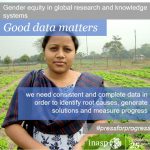 Next Post
Next Post